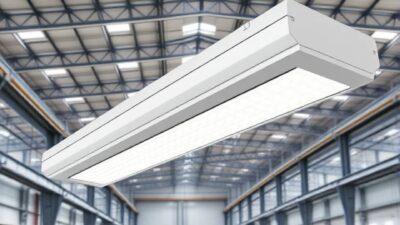Americans installed enough solar panels in 2022 to power 22 million homes. This number is expected to increase in the upcoming years as the energy sector continues to become more and more environmentally conscious.
Solar panels are viewed as the ideal source of energy for homes and businesses. While solar panels may be a better fit for warmer areas, they still can provide adequate heating for your home.
So, do solar panels work in the winter? Of course, they do, and we’re going to talk about how in this article. Keep reading to find out everything you need to know.
How Solar Panels Harness and Absorb Heat
Solar panels use the sun’s energy to generate electricity. They are made of materials called photovoltaic or PV cells, which absorb and convert the sun’s energy into electricity. These cells absorb the energy from the sun by way of photons (light particles) and convert it into electricity.
The solar panel absorbs the sunlight, which is then converted into energy within the solar panel. The panel then transmits this energy into wires, which then take the energy to other devices.
The heat absorbed is used to create an electrical current that can be used as an energy source. That is why solar panels are an effective way to produce electricity.
Solar panels are made of highly efficient materials that absorb a range of light frequencies from the sun, from ultraviolet to infrared. Additionally, the heat emitted by the panel can also be used for other purposes, such as water heating.
Evaluating the Efficiency in Cold Climates
A solar panel’s output decreases considerably in low temperatures, making cold climate locations a challenge. For example, in temperatures below 25 degrees F, a solar panel’s efficiency can be reduced by up to 50%. Likewise, a decrease in ambient temperature can lead to a drop in the cell’s wattage by around 0.45% for every degree decrease.
Thick snow cover and ice accumulation on the solar panel can also be a risk. To mitigate the output decline due to cold climates, solar panel designs must consider ways to remain efficient while facing extreme temperature drops. Solutions such as specialized materials, improved engineering designs, and weatherproof barriers have been and are being developed to tackle this problem.
Maximizing the Performance During Cold Temperatures
To maximize the performance of solar panels during cold temperatures, it is important to make sure the panels are correctly angled to optimize exposure to the sun. Proper tilt angles also prevent snow and ice from building up on the solar panels and blocking the sunlight, which can reduce efficiency.
Additionally, it is important not to forget regular cleaning and maintenance during the winter months. Any dirt or dust accumulation will reduce the value of the solar panels.
Lastly, use anti-reflective and hydrophobic coatings. It will help lessen the amount of light reflected off the solar panels and further maximize exposure to the sun.
Expected Yields and Cost of Winter Solar Panels
Generally, photovoltaics (PV) works best with direct sunlight. And in wintertime, the daylight hours are shorter, and the sunlight is reduced. Despite this, Blue Raven Solar’s innovative knowledge of the energy industry and proprietary engineering design can land you an expected yield of 13% higher than the national average, even in winter months.
In terms of cost, Blue Raven Solar offers a range of quality systems. It has the most expensive option offering a 25-year industry-leading warranty.
Common Misconceptions About Solar Power in Winter
Many people think that solar power does not work in winter. This is simply not true. Solar panels are designed to convert the sun’s energy into useful electricity no matter what time of year it is. During winter, the days are shorter.
But assuming there is a clear sky, panels can capture enough energy from the sun to produce useful amounts of electricity throughout the day. Moreover, solar panels don’t only need direct light from the sun; they can also harness light from cloudy or overcast skies.
Technology has advanced to the point where solar panels are more efficient at converting solar energy into electricity in cold climates than in warm climates. Of course, some winter weather conditions can limit solar panel production, but the misconception that solar power can’t work in winter is just that misconception.
Alternative Sources
A homeowner could use a combination of wind and geothermal energy to supplement their solar energy generation. Wind turbines provide a steady source of energy when the wind is blowing. It can be paired with a solar system for additional energy generation when solar energy is diminished.
Also, geothermal energy systems can be installed as a part of existing heating and cooling structures. These systems can be used to provide an additional source of energy in times when solar energy is insufficient.
How to Prepare Your Solar Panels for the Winter
To prepare your solar panels for winter, it is important to keep them clear of snow and dirt by installing a protective covering. You should also keep an eye on their voltage output and inspect your system wiring to ensure they are waterproof and insulated.
Additionally, you should check the mounting brackets and connections, making sure they are secure and weatherproof. Finally, you can help to increase the efficiency of your solar panels in winter by changing their angle and orientation towards the sun to ensure that as much of the available light is reaching them as possible.
Making Sure if Do Solar Panels Work in the Winter
Solar panels are an excellent way to generate renewable energy year-round! The panels collect enough light in winter to generate electricity even on shorter, cloudier days.
For anyone considering switching to solar, now is the perfect time to make the switch and get an extra jump on long-term savings. Start saving with solar power today and research how do solar panels work in the winter!
Did you find these tips helpful? Are you excited to read more interesting content? If so, stick around and check out more of our articles!









